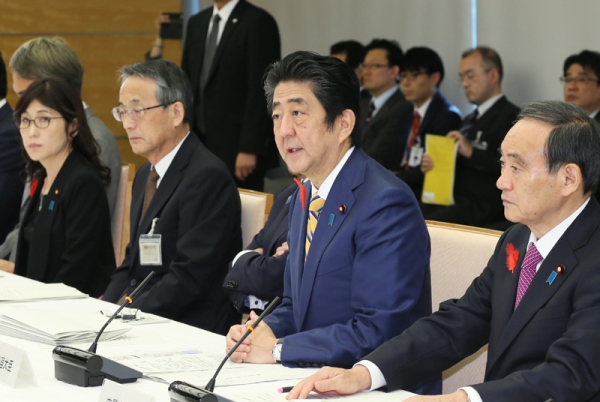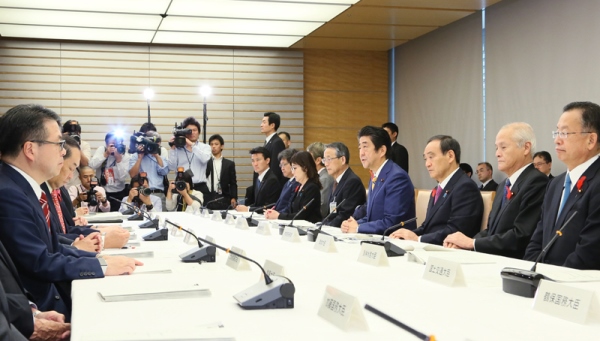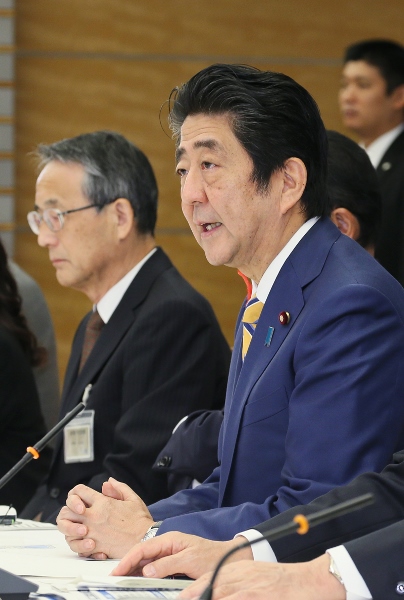Home > News > The Prime Minister in Action > October 2016 > Nuclear Emergency Preparedness Council
The Prime Minister in Action
Nuclear Emergency Preparedness Council
October 14, 2016
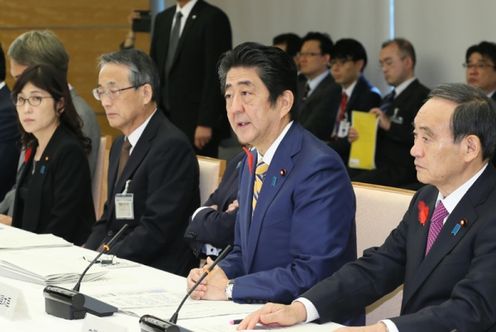
Photograph of the Prime Minister delivering an address (1)
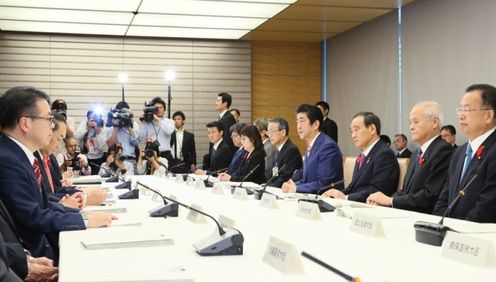
Photograph of the Prime Minister delivering an address (2)
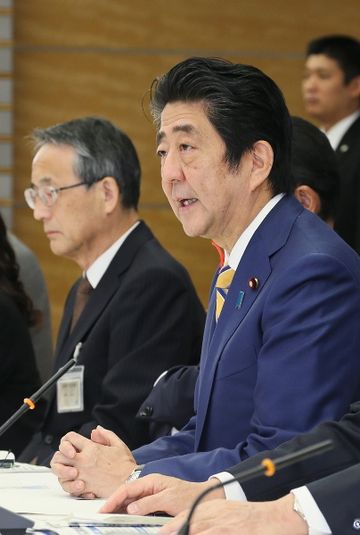
Photograph of the Prime Minister delivering an address (3)
[Provisional Translation]
Prime Minister Shinzo Abe held the seventh meeting of the Nuclear Emergency Preparedness Council at the Prime Minister's Office.
At the meeting, there were reports on “the outcomes of the verification of emergency responses in the Tomari area” and “the holding of the FY2016 Nuclear Energy Disaster Prevention Drill.”
Based on the reports, the Prime Minister said,
“Today, it was reported that a meeting of the Regional Nuclear Emergency Preparedness Council confirmed that the emergency responses for the Tomari area are concrete and reasonable.
In mid-November, we will hold a Nuclear Energy Disaster Prevention Drill for the Tomari Nuclear Power Station . Early next year, we will also hold a drill based on the scenario that a snowstorm has occurred, in light of the characteristics of the Tomari area. Through these drills, we will investigate the emergency preparedness of the Tomari area. We will extract lessons learned from the results of the drills, and implement further improvements and enhancements for our emergency responses.
It has been the consistent policy of the Government to respect the decisions made by the highly independent Nuclear Regulation Authority (NRA) regarding the nuclear power stations for which the NRA conducted scientific and technical examinations and found to be in compliance with the new regulatory standards that are the most rigorous in the world, and to restart only these power stations while gaining the understanding of the host communities. The Government has a responsibility to promote this kind of policy.
In addition, should there be a situation in which a nuclear power accident occurs and it reaches a situation which could result in a disaster, it is the Government’s important responsibility to protect the lives, health, and property of the people, and the Government will do so responsibly. The Government will spare no effort in providing maximum support to municipalities and in doing all that it can.
I want to request understanding and cooperation for these policies from relevant municipalities such as Hokkaido.
Five years have passed since the accident at Fukushima Daiichi Nuclear Power Station of the Tokyo Electric Power Company. However, we have not been able to dispel the people’s concerns about the use of nuclear power even now. Humbly accepting this situation, we will gain further public understanding on nuclear power by carefully explaining the importance of nuclear power, safety measures, and nuclear disaster measures, as well as by listening to the various opinions of the people and reflecting them appropriately in Government initiatives.”

